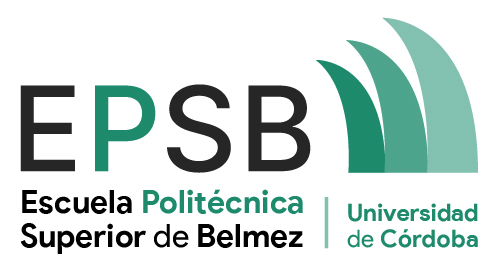SKILLS IN ENGINEERING OF ENERGY AND MINERAL RESOURCES (ORDER CIN / 306/2009 - BOE-nº 42 - 18/02/2009)
Skills for the Degree in Energy Resources and Mining Engineering:
- BTS1 (Specific Basic Training SKILL 1): Ability to solve mathematical problems that may arise in Engineering. Ability to apply knowledge about: linear algebra; geometry; Geometrical differences; differential and integral calculus; differential equations and partial derivatives; numerical methods; numerical algorithms; statistics and optimization.
- BTS2: Capacity for spatial vision and knowledge of graphic representation techniques, both by traditional methods of metric geometry and descriptive geometry, and by computer aided design (CAD) applications.
- BTS3: Basic knowledge about the use and programming of computers, operating systems, databases and software with applications in engineering.
- BTS4: Understanding and mastering the basic concepts of the general laws of mechanics, thermodynamics, fields and waves, and electromagnetism and their applications for solving engineering problems.
- BTS5: Basic knowledge of geology and terrain morphology and their applications in problems related to engineering. Climatology.
- BTS6: Adequate knowledge of the business model, institutional and legal framework of a business. Organization and management of companies.
2. Common skills of the mining branches:
- CSMB1 (Common Skills to Mining Branches 1): Ability to solve ordinary differential equations for their applications in engineering problems.
- CSMB2: Understanding the concepts of randomness of physical, social and economic phenomena, as well as uncertainty.
- CSMB3: Knowledge of basic numerical calculations as applied to engineering.
- CSMB4: Understanding and mastering the basic concepts of the general laws of mechanics and thermodynamics and their applications for solving engineering problems. Transfer of heat and matter and thermal machines.
- CSMB5: Ability to know, understand and use materials principles and technology.
- CSMB6: Knowledge of geotechnics and mechanics of soils and rocks.
- CSMB7: Knowledge of materials resistance and structure theory.
- CSMB8: Knowledge of topography, photogrammetry and cartography.
- CSMB9: Knowledge of the principles of fluid mechanics and hydraulics.
- CSMB10: Ability to analyze the problems of health and safety in projects, plants or facilities.
- CSMB11: Basic knowledge about the power system: power generation, transmission network, routing and distribution, as well as types of lines and conductors. Knowledge of the regulations on low and high voltage. Knowledge of basic electronics and control systems.
- CSMB12: Ability to apply methodologies of studies and evaluation of environmental impact and, in general, of environmental technologies, sustainability and waste treatment.
- CSMB13: Capacity for planning and
- comprehensive management of works, measurements, stakeouts, control and monitoring.
- CSMB14: Knowledge of construction procedures.
- CSMB15: Knowledge of the methodology, management and organization of projects.
3. Specific Skills of Technology in Mining Exploitation:
- SSME1 (Specific Mining Technology Skill 1): Extraction of raw materials of mineral origin.
- SSME2: Design, planning and management of mining operations.
- SSME3: General and detailed geology.
- SSME4: Geotechnical studies applied to mining, construction and civil works.
- SME5: Mineralogical, petrographic and geotechnical tests. Sampling techniques.
- SSME6: Reservoir modeling.
- SSME7: Elaboration of thematic cartography.
- SSME8: Design and execution of surface and underground works.
- SSME9: Drilling and maintenance techniques applied to underground and surface works.
- SSME10: Handling, transport and distribution of explosives.
- SSME11: Design, operation and maintenance of plants for preparation and treatment of minerals, industrial rocks, ornamental rocks and waste.
- SSME12: Design, operation and maintenance of construction materials manufacturing plants.
- SSME13: Electrification in mining industries.
- SSME14: Ecology and spatial planning. Territorial and urban planning and management.
4. Specific Skills of Technology in Energy Resources, Fuels and Explosives:
- SSER1 (Skills on Specific Technology in Energy Resources, Fuels and Explosives 1): Utilization, transformation and management of energy resources.
- SSER2: Works and hydraulic installations. Planning and management of hydraulic resources.
- SSER3: Generation, transport, transformation and management of electric and thermal energy.
- SSER4: Basic process operations.
- SSER5: Petrochemical and carbochemical refining processes.
- SSER6: Nuclear engineering and radiation protection.
-
- SSER7: Logistics and energy distribution.
- SSER8: Alternative energy and efficient energy use.
- SSER9: Manufacturing, handling and use of industrial and pyrotechnic explosives. Characterization tests of explosive substances. Transport and distribution of explosives.
- SSER10: Quality control of the used materials.
5. Final capstone project requirement for the degree:
- CEFG (End-of-Degree Work Requirement): An original project to be carried out individually to be presented and defended in front of a university faculty panel. The task will consist of a field project of a professional nature in which the specific technologies of civil engineering are synthesized and integrated demonstrating the skills acquired in the teachings.

